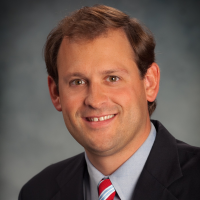Both Parties Flood House Financial Services Committee with Freshmen to Raise Campaign Funds
 Rep. Andy Barr
Rep. Andy Barr
Due to its responsibility for overseeing the banking industry, the Financial Services Committee in the U.S. House of Representatives has become a cash cow that both political parties exploit for fundraising purposes, freshmen lawmakers included.
With the committee charged with writing legislation that impacts banks, industry representatives enthusiastically contribute to House members to sway their decision-making and voting decisions. In fact, political action committees created by banking interests have doled out $9.4 million to Financial Services Committee members in the first six months of this year, which is more money than members of any other House committee have received from special interests.
Banks are so willing to pony up sizeable contributions that House leaders over the past three decades have kept adding seats to the Financial Services Committee, expanding it from 44 members in 1980 to 61 members today.
Both parties like to put newly elected members of Congress on the committee because they are considered more vulnerable in their reelection battles and need more campaign funds. Some of these first-term members of the House have demonstrated a real knack for pulling in the cash contributions.
Representative Andy Barr (R-Kentucky) is only in his first year in office, and despite having little experience with Wall Street before going to Washington, was given a seat on the Financial Services Committee.
Barr raised $150,000 in financial industry PAC donations during the first six months of this year—nearly as much money as veteran lawmakers like House Speaker John A. Boehner and other party leaders collected.
Brad Miller, a North Carolina Democrat who served on the Financial Services Committee before he left Congress, said he witnessed intense pressure to dial-for-dollars from special interests.
“Freshmen are pushed and pushed and pushed to raise money—it’s how they are judged by the leadership and the political establishment in Washington,” Miller, who joined the Financial Services Committee in 2003 as a freshman, told The New York Times. “It’s only natural that it has got to be on your mind that a vote one way or other is going to affect the ability to raise money.”
In the House Democratic caucus, freshmen are urged by their leadership to spend up to four hours a day soliciting contributions from financial supporters.
The pressure has worked, as each of the seven freshman Democrats on the committee raised more industry PAC money so far this year than the committee’s top Democrat, Representative Maxine Waters of California, who hasn’t gotten along with the industry.
In spite of opposition from Waters and the Obama administration, each of the seven Democrats pursued the desire of Wall Street banks in weakening some of the most restrictive provisions of the 2010 Dodd-Frank regulations that were put in place to prevent a repeat of the 2008 financial crisis and ensuing recession.
Among GOP freshmen on the committee, Barr and Representatives Tom Cotton of Arkansas and Ann Wagner of Missouri have raised more money from industry PACs than many longtime committee members like Representative Spencer Bachus (R-Alabama), who served as the panel’s chairman until the end of last year.
-Noel Brinkerhoff
To Learn More:
For Freshmen in the House, Seats of Plenty (by Eric Lipton, New York Times)
House Freshmen on Financial Services Making Bank (by MJ Lee, Politico)
Big Bank Lobbyists Help Write Bank Regulation Bills for Congress (by Matt Bewig, AllGov)
- Top Stories
- Unusual News
- Where is the Money Going?
- Controversies
- U.S. and the World
- Appointments and Resignations
- Latest News
- Musk and Trump Fire Members of Congress
- Trump Calls for Violent Street Demonstrations Against Himself
- Trump Changes Name of Republican Party
- The 2024 Election By the Numbers
- Bashar al-Assad—The Fall of a Rabid AntiSemite






Comments